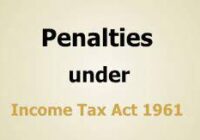How to File Taxes as a Freelancer in the USA?
Introduction Filing taxes as a freelancer in the USA can feel overwhelming, especially for those new to self-employment. Unlike traditional employees, freelancers must handle their own tax filings, deductions, and payments. Understanding the process is essential to avoid penalties and maximize deductions. This guide provides a step-by-step approach to filing taxes as a freelancer, including… Read More »









